The local government institutions in Bangladesh have been carrying out a number of development projects under the head of social safety net programme (SSNP) to provide community-based services for the vulnerable sections of the society. However, the key challenges relate to ensuring quality of implementation of these projects and adequate provisioning of these services. The local government institutions and representatives can partner with community based organisations for selecting beneficiaries and monitor these projects for effective delivery of these services. Indeed, the achievement of the SDGs hinges critically on this. There is a need for creating local database for selecting program beneficiaries. This is also important in taking the benefits of the development to the grassroots so that no one is left behind.
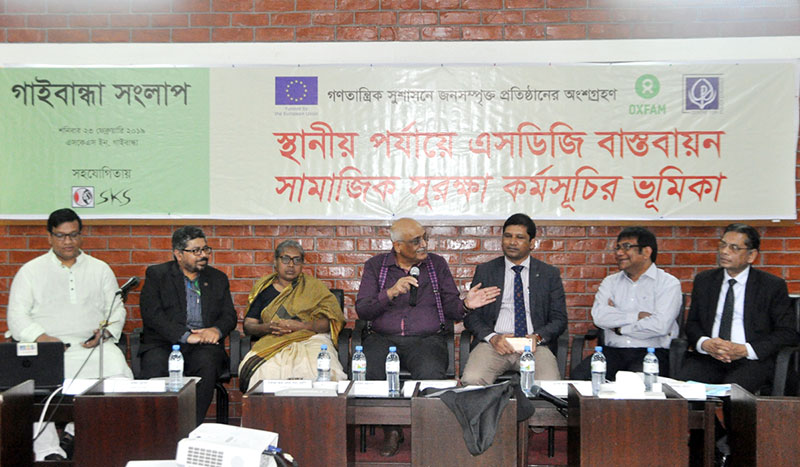
These views were shared at a dialogue in Gaibandha, jointly organised on 23 February 2019 by the Centre for Policy Dialogue (CPD) and Oxfam and supported by the SKS Foundation. The event was held under the project titled, “Enhancing the participation of community-based organizations (CBOs) and civil society organizations (CSOs) in democratic governance in Bangladesh”. The programme is being implemented by the CPD and Oxfam, with support from the European Union (EU). The trigger presentation and discussions at the dialogue were based on an ongoing study conducted by the CPD.
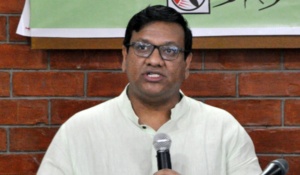 Mr Towfiqul Islam Khan, Senior Research Fellow, CPD made the keynote presentation titled, “The Role of Social Safety-Net Programmes in SDG Delivery at the Local Level”. Ms Mahabub Ara Begum Gini, MP, Whip, Bangladesh National Parliament, was present at the dialogue as the Chief Guest; Mr Md. Tofayel Hossain, Additional Deputy Commissioner (Revenue) and Additional District Magistrate, Gaibandha, was present as the Special Guest. Professor Mustafizur Rahman, Distinguished Fellow, CPD, summarised the key points emerged from the discussion. Dr Debapriya Bhattacharya, Distinguished Fellow, CPD, Chaired the dialogue.
Mr Towfiqul Islam Khan, Senior Research Fellow, CPD made the keynote presentation titled, “The Role of Social Safety-Net Programmes in SDG Delivery at the Local Level”. Ms Mahabub Ara Begum Gini, MP, Whip, Bangladesh National Parliament, was present at the dialogue as the Chief Guest; Mr Md. Tofayel Hossain, Additional Deputy Commissioner (Revenue) and Additional District Magistrate, Gaibandha, was present as the Special Guest. Professor Mustafizur Rahman, Distinguished Fellow, CPD, summarised the key points emerged from the discussion. Dr Debapriya Bhattacharya, Distinguished Fellow, CPD, Chaired the dialogue.
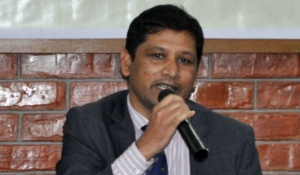 The keynote presentation focused on role and budgetary allocation for social safety net programmes both nationally and for Gaibandha and why it is necessary to raise the quality and delivery of services, particularly for the marginalised groups in the society. The paper observed that SDGs could be good entry point to deliver quality services. The keynote came up with a number of policy recommendations including the work of the union digital centre, the role of the elected representatives, information dissemination and better integration of the work of the government officials and other relevant stakeholders.
The keynote presentation focused on role and budgetary allocation for social safety net programmes both nationally and for Gaibandha and why it is necessary to raise the quality and delivery of services, particularly for the marginalised groups in the society. The paper observed that SDGs could be good entry point to deliver quality services. The keynote came up with a number of policy recommendations including the work of the union digital centre, the role of the elected representatives, information dissemination and better integration of the work of the government officials and other relevant stakeholders.
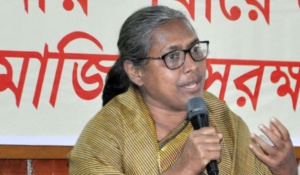 While speaking as the Chief Guest, Ms Mahabub Ara Begum Gini, urged the local government and local administration representatives to work with honesty and sincerity in order to ensure good governance and fair distribution of the SSNP allocations. She further stressed on avoiding the practice of dividing the number of beneficiaries among SSNP implementers at the UP level, thus reduce nepotism.
While speaking as the Chief Guest, Ms Mahabub Ara Begum Gini, urged the local government and local administration representatives to work with honesty and sincerity in order to ensure good governance and fair distribution of the SSNP allocations. She further stressed on avoiding the practice of dividing the number of beneficiaries among SSNP implementers at the UP level, thus reduce nepotism.
The floor discussion also emphasised on need for collection and creation of a disaggregated database for SSNPs at the local level. Besides, issues such as demand based project selection, establishment of feedback mechanism for programmes, organisation of training and workshops for UP level implementers and community-based organisations, free flow of information and strict adherence to the implementation guideline were highlighted by the participants.
The dialogue was participated by people’s representatives, local level government officials, representatives of various civil society and grassroots organisations working in Gaibandha and private sector.
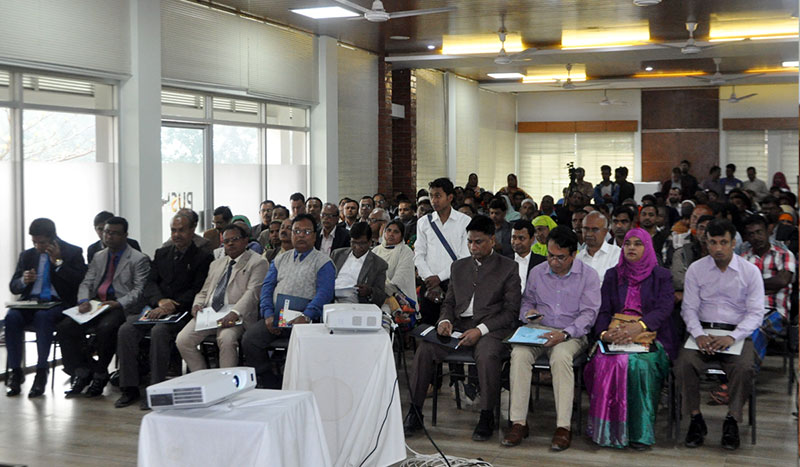


Leave A Comment